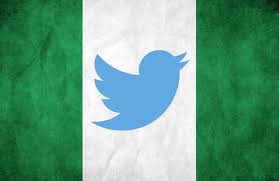When Nigeria’s 39 million Twitter users woke up to the reality that the social media platform has been banned, there was an outcry as its dire economic consequences began to bite almost immediately.
Aside from the millions of people (most of them young) who use Twitter, tens of thousands of both big and small businesses use social media including, Facebook, Whatsapp and Istagram to sell their brands to the world.
So their outrage was expected when the ban robbed them of the right to showcase what they have to offer, a natural lifeblood for any enterprise.
According to economists, the daily economic loss has ran into hundreds of millions of dollars since last week’s ban.
“Aside from gagging the social media air of businesses to survive and thrive, it is also sending the wrong signals to would-be investors” one economist warns.
He says it will keep investors away as global big business especially those involved in the tech industry looking to invest and establish investment footprints across Africa will almost certainly look anywhere else but in Nigeria.
Over the past six years, Africa’s biggest economy has earned the unenviable reputation of a country where free speech is repeatedly undermined under the Muhammadu Buhari regime.
Many Nigerians were riled by Twitter’s decision in April to pick Nigeria’s West African rival Ghana as their first headquarters in Africa.
This to many Nigerians was a slap in the face but given the climate of uncertainty around the free media, the reactions to Twitter were decidedly muted.
Although Nigeria’s 39 million users trumped Ghana’s entire population at 32 million, other issues which appeared more important to Twitter seemed to have informed their decision to shun Africa’s most populous country for the land of Kwame Nkrumah.
Twitter praised Ghana as a beacon of democracy, where freedom of speech online projects it as a country respecting the open internet society, all of which implicitly do not obtain in Nigeria.
Meanwhile Nigerian businesses desperate to survive the ban have resorted to other means of accessing and using the social media platform.
Many are using Virtual Private Networks (VPNs) to circumvent the ban and expressing how they feel about the “draconian measure” despite warnings by the Buhari government of “serious consequences” for “Twitter sneakers”.
The Guardian Nigeria enumerated the implications of the ban, saying the “influencer marketing space” which has grown exponentially over the past 10 years is being disrupted.
It warns that SMEs will suffer from low sales given that most of them depend on social media platforms like Twitter to sell their brands.
“Twitter has been instrumental to finding job opportunities and soulmates” it adds.
Media organisations in the country have also used the platform to spread their news contents to audiences which in the past had been hard if not impossible to reach.
While condemning threats by the Nigerian government of a clampdown on “Twitter sneakers” foreign diplomats in Nigeria have lend a vociferous voice to the #KeepitOn campaign aimed at reversing the ban.
Since Buhari was elected in 2015, media rights activists have been “alarmed” by the steady decline in freedoms in Nigeria.
The Buhari administration has been involved in brushes with local journalists some of whom have either being imprisoned or charged with “treasonable offenses”.
According to the Reporters Without Borders 2021 World Press Freedom Index, Nigeria nestles in 120th out of 180 countries.
Nigerian journalists and activists have been up in arms against the much maligned Protections from Internet Falsehood and Manipulations Bill since 2019.
Under a government regulation social media platforms such as Skype, Netflix, WhatsApp, and Zoom must be licensed by the Nigeria Broadcasting Commission before they can be allowed to operate.
Twitter’s trouble with the Nigerian authorities seemed to have began when the platform deleted a President Buhari tweet on the grounds that it had violated its house rules.
This has led many to speculate that ban was the government’s own way of getting even, but the economic fallout from the saga has rendered it too heavy a price to pay by this nation of 201 million people.
WN/as/APA


